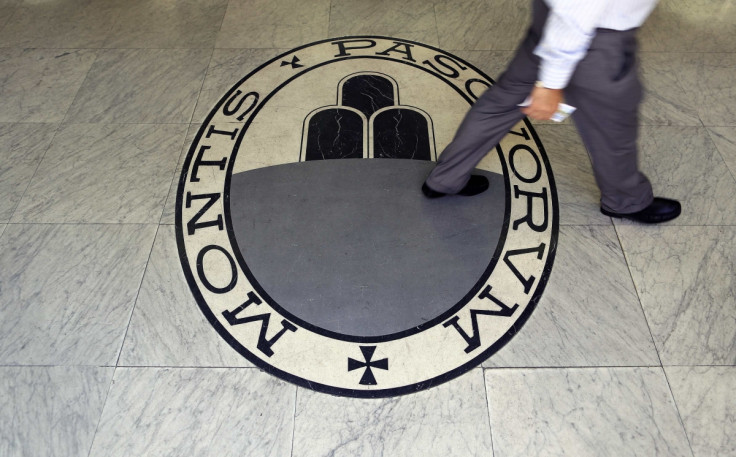Monte dei Paschi: Italy greenlights €20bn bank bailout plan
Bailout plan could be used to rescue Banca Monte dei Paschi di Siena before the end of next week.

Italy's government has approved a €20bn (£16.9bn, $20.9bn) bailout package aimed at rescuing the country's stricken banking sector.
The measure approved by the parliament says the state can borrow money to provide "an adequate level of liquidity into the banking system" and reinforce a lender's capital by "underwriting new shares".
Banca Monte dei Paschi di Siena (MPS), the world's oldest bank, could be the first to benefit from the fund, with the Italian treasury expected to intervene by the end of next week.
Italy's third-largest lender is hoping to raise €5bn before the end of the year to avoid being nationalised. The share sale began at 1pm on Monday, with 65% of the new shares reserved for institutional investors and priced between €1 and €24.9.
MPS, whose share price has fallen by more than 80% in 2016, has also relaunched a debt-for-equity swap offer, asking investors to convert the junior bonds they own into shares.
The lender ran a similar offer in recent weeks, although junior bondholders only converted €1bn worth of bonds out of the €4bn+ currently in circulation.
Earlier on Wednesday, the Tuscan bank warned it might run out of funds by April 2017, using €11bn (£9.2bn) worth of financial assets by then – and it could use up to €15bn of funds by May, despite previously stating it had sufficient funds to stay afloat for 11 months.
Shares in the bank were suspended shortly after the opening bell, as they hit the lowest level since the lender's flotation in 1999.
Paolo Gentiloni, who succeeded fellow Democratic Party member Matteo Renzi as Italian Prime Minister earlier this month, vowed the government would not let MPS fail. However, Rome has desperately tried to avoid pumping funds into MPS for fears of political ramifications.
Under new EU regulations, a state bailout would in all likelihood lead to private investors having to shoulder a significant hit, a prospect Rome wants to avoid given the growing Euro-scepticism in the country.
"The impact on savers, if a [government] intervention should take place, will be absolutely minimised or non-existent," the country's finance minister, Pier Carlo Padoan, told parliament before the vote.
Earlier this month, the bank had asked until 20 January 2017 to raise the money it needs to avoid a bailout. However, the request was turned down by the European Central Bank (ECB), on the grounds that a delay would achieve little.
However, one of the plan's chief backers, Quaestio, which manages the government-orchestrated bailout fund Altante, has expressed concerns over the terms of the loan, which in turn could jeopardise last-ditch effort to raise funds.
"If it is not possible for the bank to reach an agreement with Quaestio to resolve the issues that it has raised, the transaction would not be able to be completed in accordance with the terms and conditions of the authorisation of the ECB which provides for the transaction to be completed by 31 December 2016," the bank said in a statement on Tuesday.
© Copyright IBTimes 2025. All rights reserved.






















